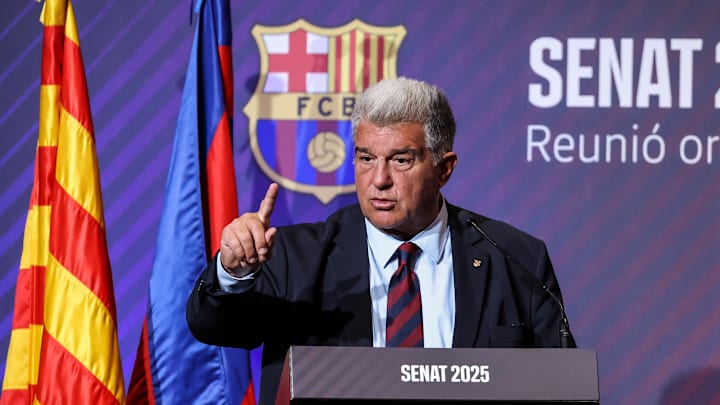Bayern Munich president Uli Hoeness made it clear this week why the club kept things quiet in the latest transfer window. The headline signing was Luis Díaz from Liverpool for €75 million, and that was pretty much it. Hoeness admitted he would’ve liked to add more players but insisted that doing so would’ve been irresponsible. To back up his point, he pointed at Barcelona, calling them the perfect example of how overspending can spiral into a real mess.
Barcelona as a mirror of mistakes
Speaking to Sport1, Hoeness didn’t mince words. “Of course we’d like to have Wirtz, but we know what we have in the bank. That’s just as important as sporting success. Look at Barcelona as an example. If you buy, buy, buy… suddenly you’re sitting on millions of euros in debt,” he said.
It wasn’t a random comparison. Barcelona has struggled season after season to register its players in La Liga, constantly bumping up against the league’s financial rules. This year was no different. Swedish forward Roony Bardghji, signed in this window, went public with complaints about not being registered. Hoeness jumped on that situation to underline Bayern’s responsible approach, a sharp contrast to rivals tangled up in debt.
Fans, of course, want big names. Hoeness, on the other hand, seems more concerned with keeping the numbers in order. That decision keeps Bayern stable, but it also stirs debate about whether the team can stay competitive when others are willing to gamble.
The clash with English spending power
Hoeness didn’t stop there. He also took aim at the Premier League’s inflated market. Bayern had put €55 million on the table for Nick Woltemade, Stuttgart’s forward, but the club was holding out for €75 million. Then Newcastle swooped in. “We had 55 million (euros) for Woltemade, but Stuttgart was asking for 75. Then Newcastle came along with a bid of 90. That’s a monopoly. It only happened thanks to the money that came from Saudi Arabia,” he said.
That frustration paints a clear picture of how the transfer game has shifted. For clubs like Bayern, the reality now includes competing with teams fueled by state-backed funds. The difference in financial muscle is obvious, and it forces the Bavarians to stick to their balance-first approach, even if it means losing targets along the way.
In the end, Hoeness’s stance can be read in two ways. On one hand, it’s a model of how to run a club responsibly in a market that’s spiraling out of control. On the other, it leaves an open question hanging in the air: when everyone else is spending big, can Bayern’s cautious strategy really hold up?
